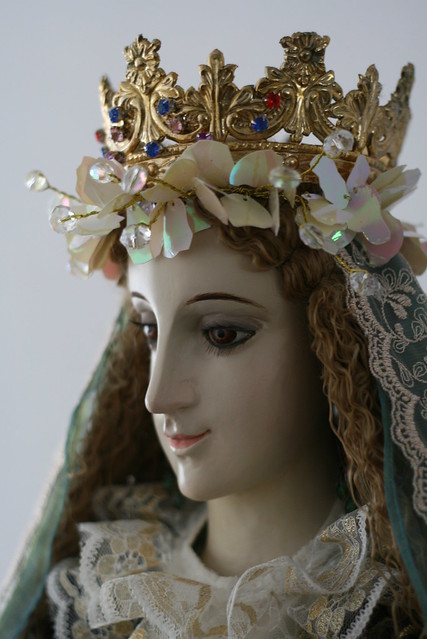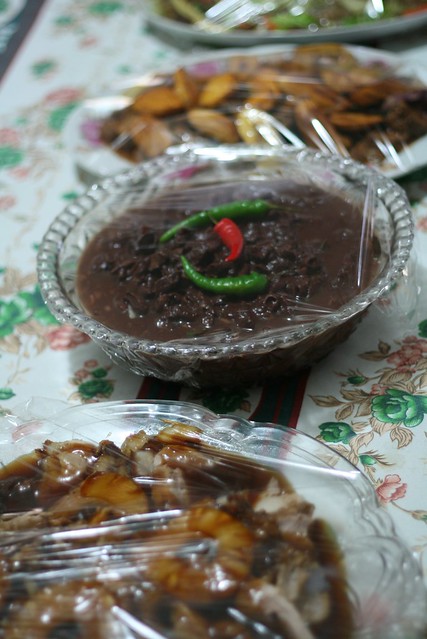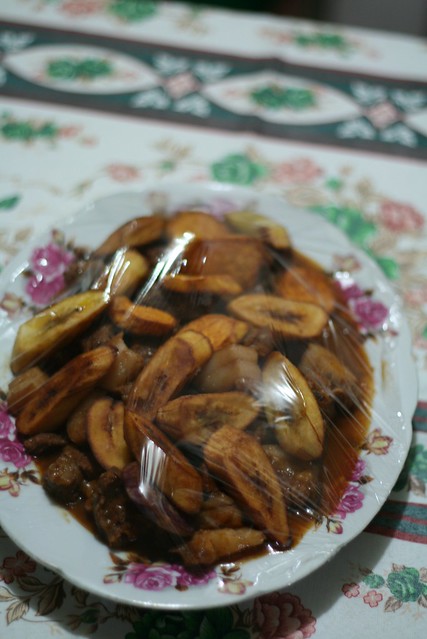
-This is a repost of an old review I had done some years back... I reckon it's worth the reading.
PERFUME [the story of a murderer]
I have more than once before encountered copies of PERFUME during my usual dvd hunting trips in quiapo but never bothered to purchase one. Even with a recommendation to do so, I never did. And so, last Saturday, with no new find other than a dvd of Ian Mckellen playing King Lear, I gave in. And what a purchase it turned out to be.
PERFUME is the story of Jean-Baptiste Grenouille, a man gifted with an extraordinary sense of smell bordering on the superhuman. The consequences of his birth on the most putrid spot in 1728 Paris, under his mother's fish stand, Jean-Baptiste Grenouille was left to be shovelled away as dirt -with the fish guts and filth- for coming out stillborn, he was thought to be dead.
But then, Grenouille breathed his first, followed by a cry which led to his discovery. Thus the very breath and cry that first came out of him, sent his mother to be hanged. [come to think of it, Picasso was stillborn, for 5 minutes laid out on the kitchen table until his uncle decided to blow in tobacco smoke into his mouth and the baby Picasso coughed. Five minutes of death equated to an artistic gift...hmmmm...]
Moving on... This pattern of death would follow those that would let Grenouille go or those that would abandon him in the years that came to pass - was what i would say be- the scourge of his leaving. Growing up in Madame Gaillard's Orphanage, he never learned to speak until years later as there were no words for the olfactory experiences he began discover of this world through his divine gift.
By the age of 13, Madame Gaillard sells him to a tanner named Grimal, and she was to meet her end later for the ten francs she had earned would soon mean her death on the hands of robbers.
Surviving Grimal's tannery in the years that came, one fateful trip to the heart of Paris would change his life forever.
His first ever expedition from the tannery, the only world he had known for years, into the heart of the city intoxicated him as he breathed. And in doing so, his feet led him to Pelissier's perfume shop, and from the window outside he was able to smell the latest craze in perfumes; a scent named 'amor and psyche'. Mind you, I have never seen the streets of Baroque Paris portrayed this way on film. Capturing the contrasts and movement of light and darkness, the well-to-do and those that have none, and Grenouille against the backdrop was an engaging cinematic sight.
Then, by the corner,another scent overpowers him. He never knew much of the concept of beauty but he followed its scent. And this led him to follow a young woman, a fruit seller, that in pacifying her for screaming due to having surprised her, he ended up suffocating her. [familiar though to the idea holding a bird in thine hand never wanting to let go, ergo one ends up killing it.] His lack of experience in the other complexities of the human person, seems for us a mirror in cinema of the time we encounter loss as a child and live with the consequences of this deprivation in our adult years.
As he tried so hard to hang on to the fading scent of this dead young woman, by his hands, he tried to hold on to it. But as she is dead, the scent of beauty and life that was there once before, was gone. Thus begins his obsession with "capturing the scent of things to reprise it forever"
One is not surprised with his lack of remorse, having known the world differently. He returns to the tannery to be beaten by Grimal, a timely punishment for wandering off...
And as fate would have it, he meets Baldini, a perfumer who is past his prime and has seen better years [ brilliantly played by Dustin Hoffman ], during another delivery. To Baldini did he exhibit his gift by recreating the rival Pelissier's perfume 'amor and psyche' and made an even better one.
Here we are treated to the unconventional skill he displays. Mostly letting his nose lead him from shelf to shelf and mixing chemical after chemical. And it was a foreshadowing of how his naive notions and instinct would come into play.
Baldini purchases him from Grimal for fifty francs, and in doing so Grimal would meet the fate of Grenouille's mother and madame gaillard: death.
In Baldini's care, Grenouille learned the perfumer's craft. He resurrected his master's business to its former glory, even surpassing it. Baldini then utters the definitive master to apprentice lecture: "Because talent means next to nothing while experience acquired in humility and hard work means everything."
In this world of frauds and posseurs, this reverberates to the talented few, who not only have to contend with the fakers out there, but also take heed of the relationship between 'present mediocrity versus absent genius'. A true apprentice indeed must take nothing with him but leave learning enough with
the resolve to do much learning.
Peaking my interest aside from the beautifully detailed perfume shop and laboratory with apothecary jars, flasks, and vessels filled with wondrous things; the movie introduces the idea that every perfume is composed of 12 essences
of notes, 4 of such assigned to one
of 3 Chords; namely the head chord [a perfume's first impression that lasts a few minutes], the heart chord [the theme of the perfume that lasts for hours], and the base chord[the perfume's trail that lasts for days]. Knowing the right combination of notes and chords and their harmony results in a good perfume. Then Baldini speaks of a legendary 13th note that if added would supposedly produce the perfect perfume. This elusive 13th ingredient would be in Grenouille's thoughts...
But distilling essential oils from flowers and herbs did not meet with Grenouille's desire to capture 'the scent of all things'. And in his ignorance, he tried to distill scent from glass, copper, and a cat [yes, a cat...a cute one at that.] to find out it can never be. One does begin to pity Grenouille for the combination of innocence and ignorance he displays. The very nature of his gift evidently ostracizes him from absorbing certain realities and he himself unconsciously builds a dangerous wall.
He grows sick upon the disappointment to the point of near death. But Baldini gives him hope when the physician could give none; in a place called Grasse, he can learn the elusive art of Enflourage -another way to capture scent. And he miraculously recovers. Leaving his old master with a hundred new formulas for perfumes so his business won't go the way it did before, he journeys to Grasse. And as one would expect, Baldini would never again awake in this life.
Grenouille's journey to Grasse, reveals more to him, as his own scent leaves him. Imagine how tragic that is, having that extraordinary sense of smell but being without any scent of your own. There I mark, he saw himself dead... And the perfect perfume would undo this, would give him life, the life of which he knew he was deprived of.
I found the cinematographic treatment of this film to be such a visual feast. As Paris had a very dark and worn out texture, Grasse -i take it- was golden sunshine in a bottle. And the fields of lavender and jasmine...oh my...
Also, there is much to be said about how they treat the very concept of scent in this movie. It has a visual quality unto itself that you seem to be able to smell what you see.
There in Grasse, he learned Enflourage, and became the skill of use for his odyssey into calculated murder. And the city bathed in light and colored by the very flowers of its industry, was soon to be swalled by the shadows as one young woman after another -each with her own beauty- met their scented end in the hands of Grenouille. Their essence collected and served as a note to complete 12. Fear and Paranoia sets into Grasse by the first few dead girls. And with a manhunt for a killer, Grenouille remains uncaught...and twelve women for twelve notes to make up the chords found their way into vials.
But the legendary 13th note, in his quest for the perfect perfume, he reserved for a girl named Laura -whilst the others have been but essential notes, Laura would top them all, for he loved her [and freakishly reminded him of the first scent that he could not keep: the fruitseller's, the first one he killed]. But that proved to be his undoing. For in killing Laura, the wrath of her father [played by Alan Rickman a.k.a. Professor Snape] would fall upon him and he is hunted down. And as he was mixing his chords, by the time he finished adding the 13th note, finally with the vial of his perfect perfume, he is caught.
Hanging onto it for dear life, he was able to keep his perfect perfume and while incarcirated, he thought of how to reveal it to the world.
With his execution looming over him, in the flair of the baroque, Grenouille takes the stage so to speak and reveals the perfect perfume...a scent so powerful it topples sanity, reason, and the very fibre of morality. For this was no perfume made from some flora, this was made of the same stuff we are all made of...madenning, isn't it?
I shant give away the ending; and like the 13th note, it shall remain elusive. But i daresay, PERFUME is one great movie you should see.




























